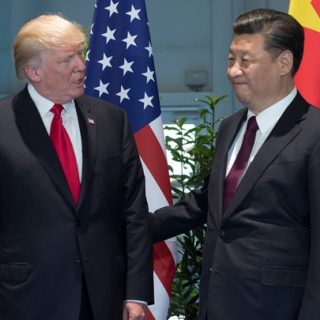


China has begun designing a new rare earth licensing regime that could speed up shipments, but it is unlikely to amount to a complete rollback of restrictions as hoped by Washington, industry insiders said.
The Ministry of Commerce told some rare earth exporters they will be able to apply for new streamlined permits in the future and in industry briefings outlined the documents that will be required, two sources familiar with the matter said.
The export curbs have become Beijing's most potent source of leverage in its trade rivalry with Washington, as China produces over 90% of the world's processed rare earths and rare earth magnets, vital in products ranging from cars to missiles.
Following the agreement reached between Presidents Donald Trump and Xi Jinping, China said last week it would pause for one year the restrictions it imposed in October.
However, China's commerce ministry has said nothing publicly about a broader round of controls introduced in April that rattled global supply chains.
The White House said on Saturday that China had agreed to introduce general licenses and characterised such permits as the de facto end of China's rare earth export controls.
In private, Chinese officials have said they are working on the licenses, three other sources briefed on discussions said, although one said it could take months.
However, other industry insiders said the new licenses do not mean China's wide-ranging rare earth export controls introduced in April have been removed.
China's Ministry of Commerce did not immediately respond to questions from Reuters.
ONE YEAR, POTENTIALLY HIGHER VOLUMES
The new licenses would be valid for a year and probably allow larger export volumes, the first two sources said. Companies are preparing documents, which will require more information from customers, they said.
The sources said they expect more clarity by the end of the year.
Some Chinese rare earth companies said they have not yet been informed of the change.
General licenses will likely be harder to acquire for users associated with defence or other sensitive areas, some industry sources said.
All sources spoke on condition of anonymity given the sensitivity of the matter.
Introduced in April and expanded in October, Beijing's rare earth rules require exporters to obtain licenses for every cargo, an onerous and lengthy process customers complain is holding up exports. The restrictions created shortages in May which brought parts of the auto industry to a halt.
Of the 2,000 applications submitted by European Union firms since April, just over half have been approved.
Source: Investing
The Trump administration suspended docking fees for Chinese-built ships as part of a "trade truce" last month. The move has drawn criticism for weakening U.S. efforts to protect port access—so-called ...
The U.S. Supreme Court's tough questioning of President Donald Trump's global tariffs has fueled growing speculation that they will be overturned, but it also raises the potential for further turmoil ...
American consumers struggling to access food assistance payments due to the government shutdown are unable to fill their shopping carts, and that's "hurtful," according to the company behind Stop &...
US President Donald Trump announced tariff cuts on fentanyl-related products from China, reducing them from 20% to 10%. This decision is part of an agreement reached at a summit in South Korea last Oc...
As the U.S. government shutdown disrupts federal employee paychecks across the country, it also exacerbates the financial hardship of attorneys who represent the poorest members of society when they a...
Gold prices rose to $4,050 per ounce on Monday (November 10), driven by increased demand for safe-haven assets amid political uncertainty in the US. Investors are still awaiting a final agreement to end the government shutdown, which has lasted...
Global stock markets rallied at the start of the week amid growing optimism that the US government shutdown will soon end. S&P 500 futures rose 0.5%, while the Nasdaq 100 gained 0.8%, after Senate Republican leader John Thune said a deal to end...
Japanese stocks are higher thanks to a weaker yen and hopes for domestic earnings growth. Tech and energy stocks are leading gains. NEC is up 2.7% and Inpex is 2.3% higher. Meanwhile, Honda Motor is down 3.8% after it cuts its fiscal-year earnings...
 European stocks fell on Friday as investors digested more quarterly earnings, but weekly losses were inevitable, with concerns regarding overheated...
European stocks fell on Friday as investors digested more quarterly earnings, but weekly losses were inevitable, with concerns regarding overheated...
 Two weeks before the US Federal Reserve's final meeting, with the federal government's data taps closed, Atlanta Fed staff bolstered their economic...
Two weeks before the US Federal Reserve's final meeting, with the federal government's data taps closed, Atlanta Fed staff bolstered their economic...
 US stocks rebounded from early losses to close mostly higher on Friday amid hopes that Congress members were making progress toward ending the...
US stocks rebounded from early losses to close mostly higher on Friday amid hopes that Congress members were making progress toward ending the...
 European markets opened higher on Friday (November 7th), recovering some of the previous session's losses amid concerns about an AI bubble. The...
European markets opened higher on Friday (November 7th), recovering some of the previous session's losses amid concerns about an AI bubble. The...